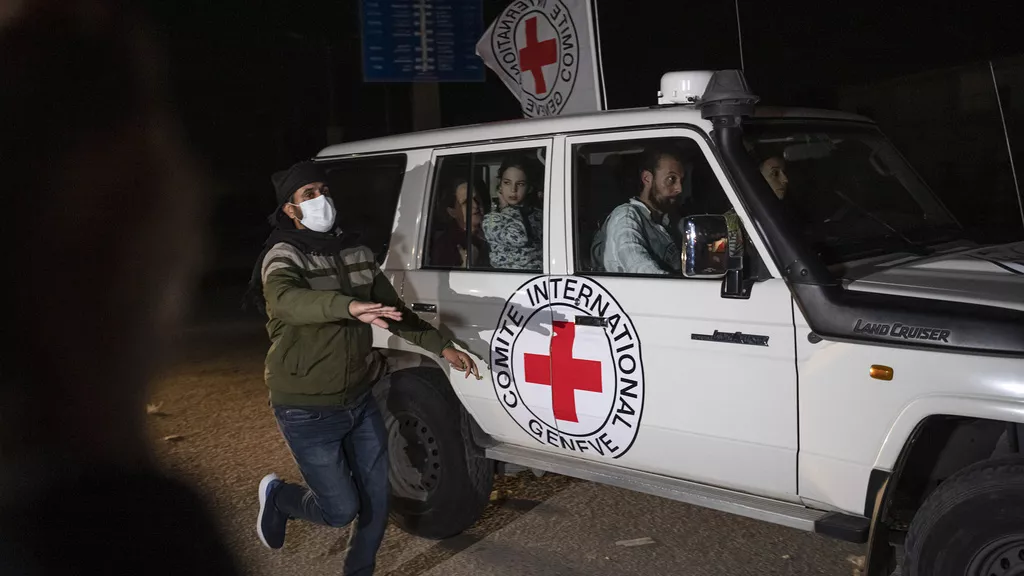2024: Deadliest year ever for aid workers amid global conflicts – UN says
3 min read
The year 2024 has tragically become the deadliest year on record for aid workers, with more humanitarian personnel losing their lives than in any previous year, according to a report from the United Nations. The violence in the Middle East, especially the ongoing conflict in Gaza, has been the main contributor to this devastating toll. As of the end of October 2024, the UN Office for the Coordination of Humanitarian Affairs (OCHA) reported that 281 aid workers had been killed globally, surpassing the previous record of 280 deaths in a year.
OCHA spokesman Jens Laerke described the situation as “shockingly tragic,” noting that humanitarians working in places like Gaza, Sudan, Lebanon, Ukraine, and other conflict zones have been showing the best of humanity while facing extraordinary risks. These aid workers, including health care providers, delivery personnel, and others, continue to work under harrowing conditions, offering life-saving assistance to those in need despite the constant threat to their own lives.
According to data from the Aid Worker Security Database, which is managed by Humanitarian Outcomes, a U.K.-based organization, the vast majority of those killed (268 out of 281) were local staff employed by humanitarian organizations, including the Red Cross and Red Crescent, while 13 were international workers. Among the regions hardest hit by violence are Palestinian areas, where 230 aid workers were killed. Though the breakdown between Gaza and the West Bank isn’t provided, Gaza is currently the epicenter of the violence.
The conflict in Gaza, which flared up in October 2023, has escalated humanitarian risks. The war, triggered by the Hamas militants’ attacks on Israel, has caused unprecedented levels of destruction and loss of life. According to local health authorities, more than 44,000 people have been killed in Gaza alone as a result of the 13-month-long conflict. The majority of these casualties are women and children, with the Israeli military reporting over 17,000 militants killed, though this figure remains unverified. The scale of suffering in Gaza has made it one of the most dangerous areas for aid workers.
The growing violence isn’t confined to Gaza. Other countries embroiled in conflict, such as Afghanistan, South Sudan, Sudan, Yemen, and Ukraine, have seen high levels of violence against aid workers as well. These workers face regular threats of kidnappings, assaults, arbitrary detentions, and harassment. OCHA noted that the scope of violence against humanitarian personnel is expanding beyond Gaza and the West Bank, with aid workers operating in other high-risk regions increasingly at risk.
The United Nations’ report has sent shockwaves through the humanitarian community, particularly those on the front lines of conflict. The unprecedented loss of life among aid workers has sparked calls for greater protection of those delivering critical assistance to vulnerable populations. Humanitarian agencies continue to push for measures to improve the safety of their staff, including enhanced security protocols, better coordination with international peacekeeping forces, and stronger deterrents against the violence targeting aid operations.
The situation in Gaza, in particular, has sparked international outrage, as the humanitarian crisis deepens. Beyond the staggering death toll, millions have been displaced, and infrastructure essential to providing care and services has been destroyed. The UN and other global organizations are calling for an immediate ceasefire and increased international efforts to allow the safe delivery of aid to those most in need.
The toll on aid workers in 2024 underscores the devastating consequences of ongoing global conflicts. The international community must prioritize the protection of humanitarians, whose life-saving work is more vital than ever in these war-torn regions. While the statistics of death and suffering are overwhelming, humanitarian organizations continue to show immense resilience, standing firm in their commitment to helping those affected by conflict and crisis. However, with aid workers facing increasingly perilous circumstances, the need for better protection and accountability has never been more urgent.








